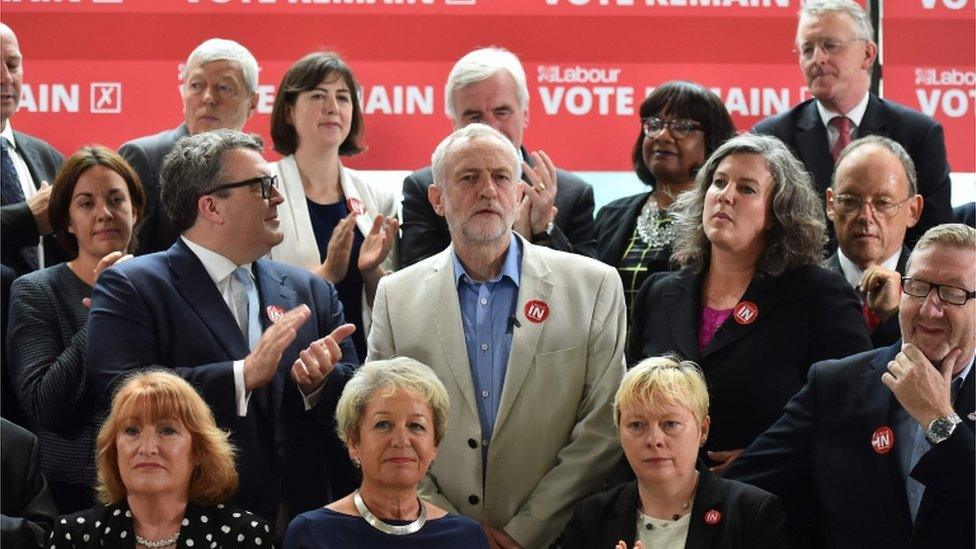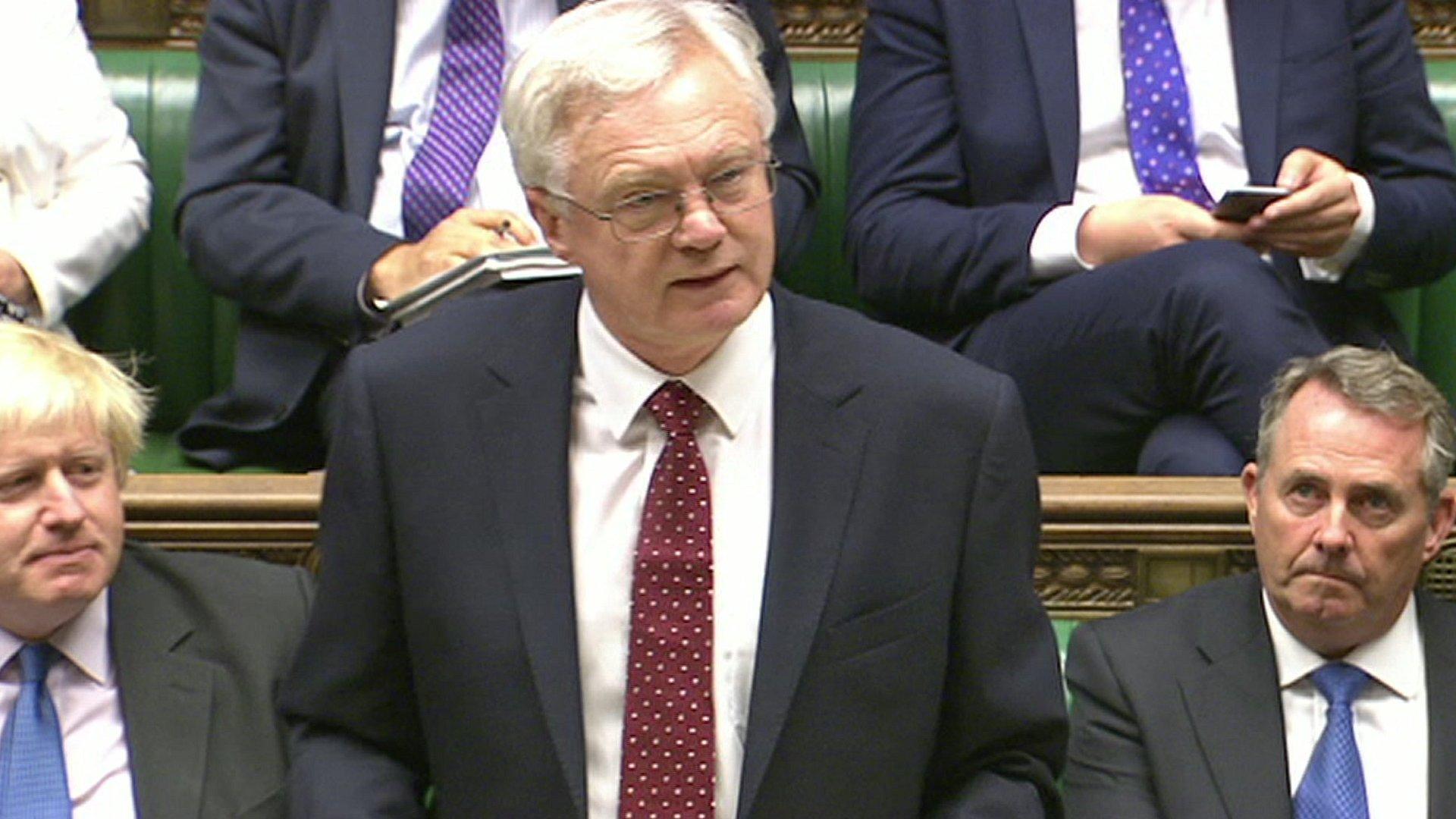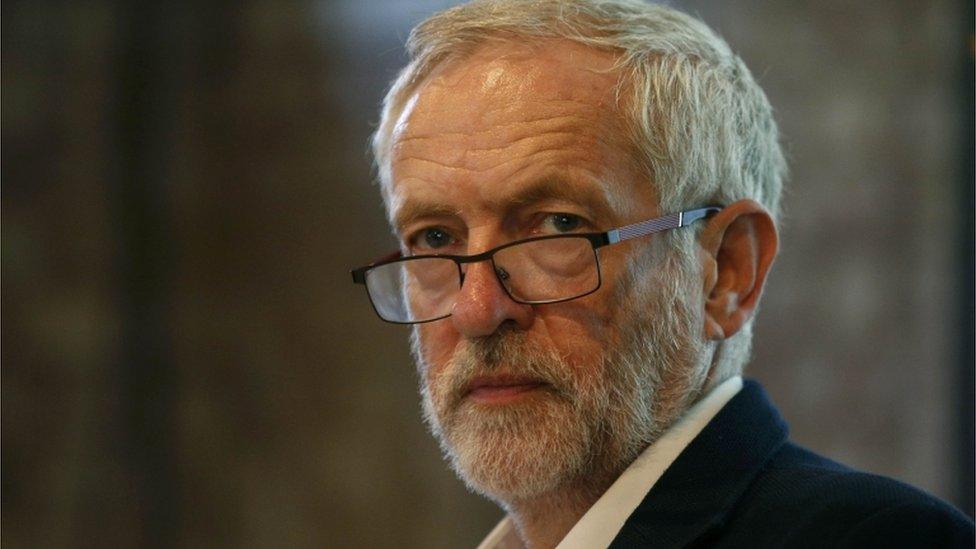Labour MPs back shadow cabinet elections plan
- Published

Most of Mr Corbyn's shadow cabinet resigned after the EU referendum
Labour MPs have backed a proposal to allow them to elect members of the party's shadow cabinet.
The proposed rule change will now go to the party's executive for approval.
It was suggested by MP Clive Betts, who called it a "pragmatic" way of making different factions in the party "work together", denying it is an attempt to "hobble" Jeremy Corbyn's leadership.
Appointments have been the leader's responsibility since 2011 when the elections system was scrapped.
If approved by the National Executive Committee, the change may be referred to party conference for final approval.
Supporters of Mr Corbyn, whose support is concentrated in the party's membership with most MPs opposing his leadership, say it is an attempt to curb the leader's power.
Mr Corbyn's spokesman has suggested the debate should also consider whether members should also get a say in choosing front bench positions.
Confidence vote
Labour is currently in the middle of a leadership contest, with Owen Smith challenging Mr Corbyn's position. The outcome will be announced on 24 September.
Ed Miliband ended elections for Labour's front bench in 2011, a method of selecting the leader's top team in opposition which had been in place for several decades.
Mr Corbyn, who opposed Mr Miliband's decision at the time, chose his own top team after his election as Labour leader last year but more than half of them resigned in protest at his leadership in the wake of June's EU referendum.
In a subsequent confidence vote, only 40 MPs supported Mr Corbyn's continued leadership while 172 said they could not back him.
Mr Corbyn's spokesman said he supported "democratisation and reform of the party rules and structures".
He added: "How the shadow cabinet is made up is one part of the debate, including whether part of it should be elected by MPs, by members or by conference."
BBC political correspondent Glenn Campbell said Mr Smith was thought to be supportive of the idea but had yet to publicly come down on one side or another.
- Published5 September 2016

- Published5 September 2016

- Published2 September 2016
